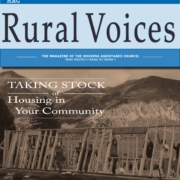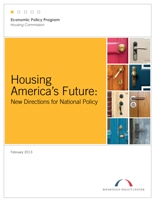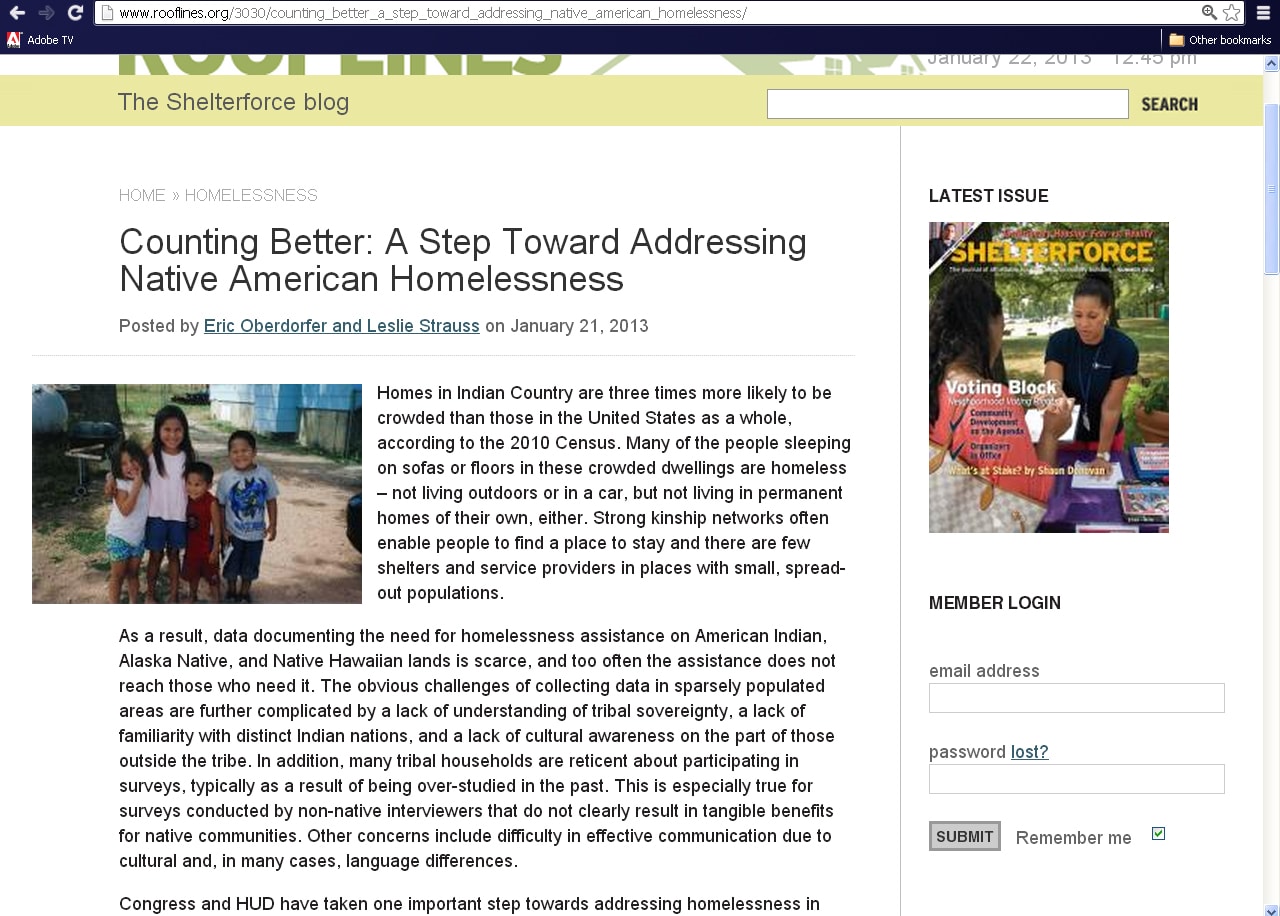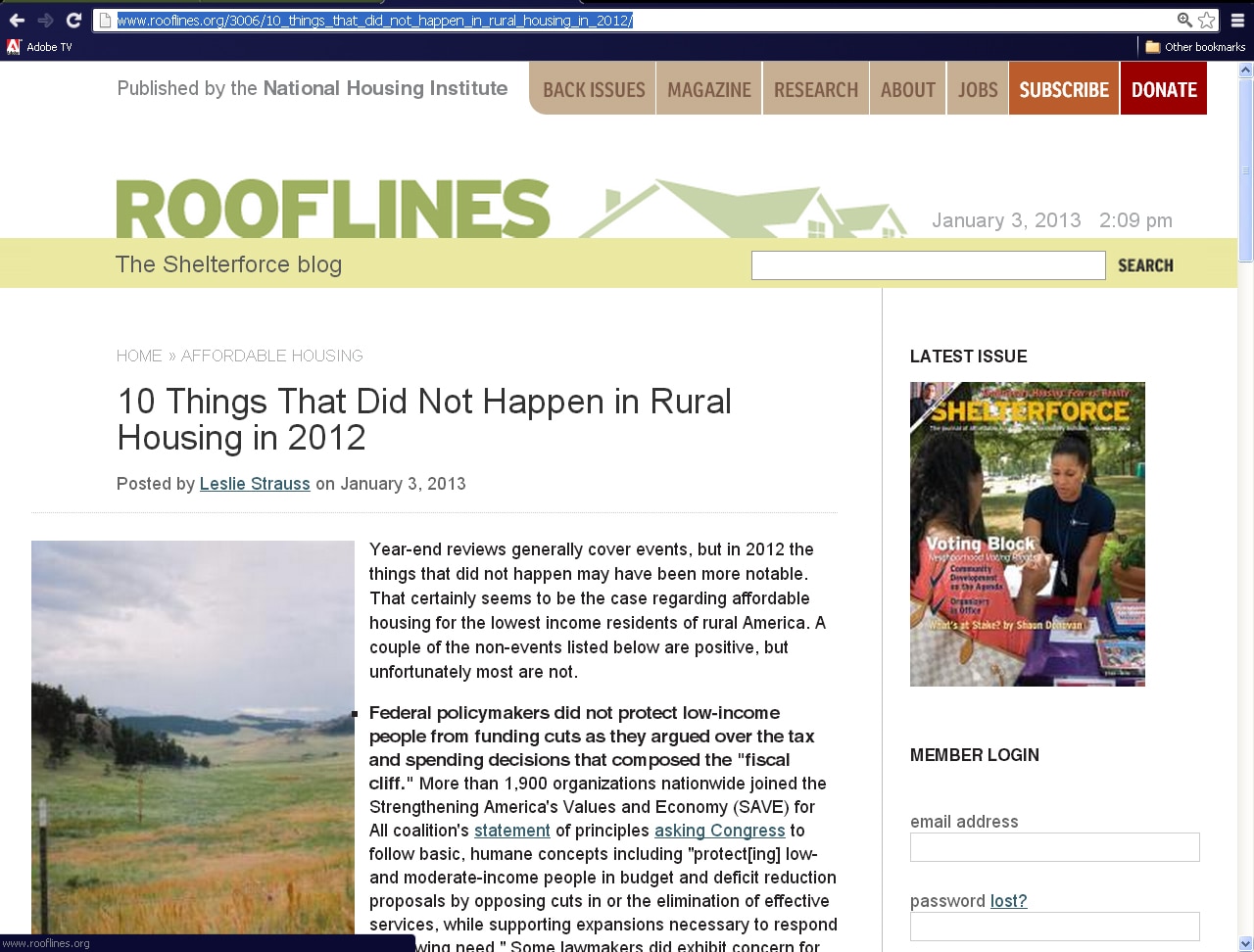What Does the Push for Transit Oriented Development Mean For Rural Areas?
by Leslie Strauss, HAC
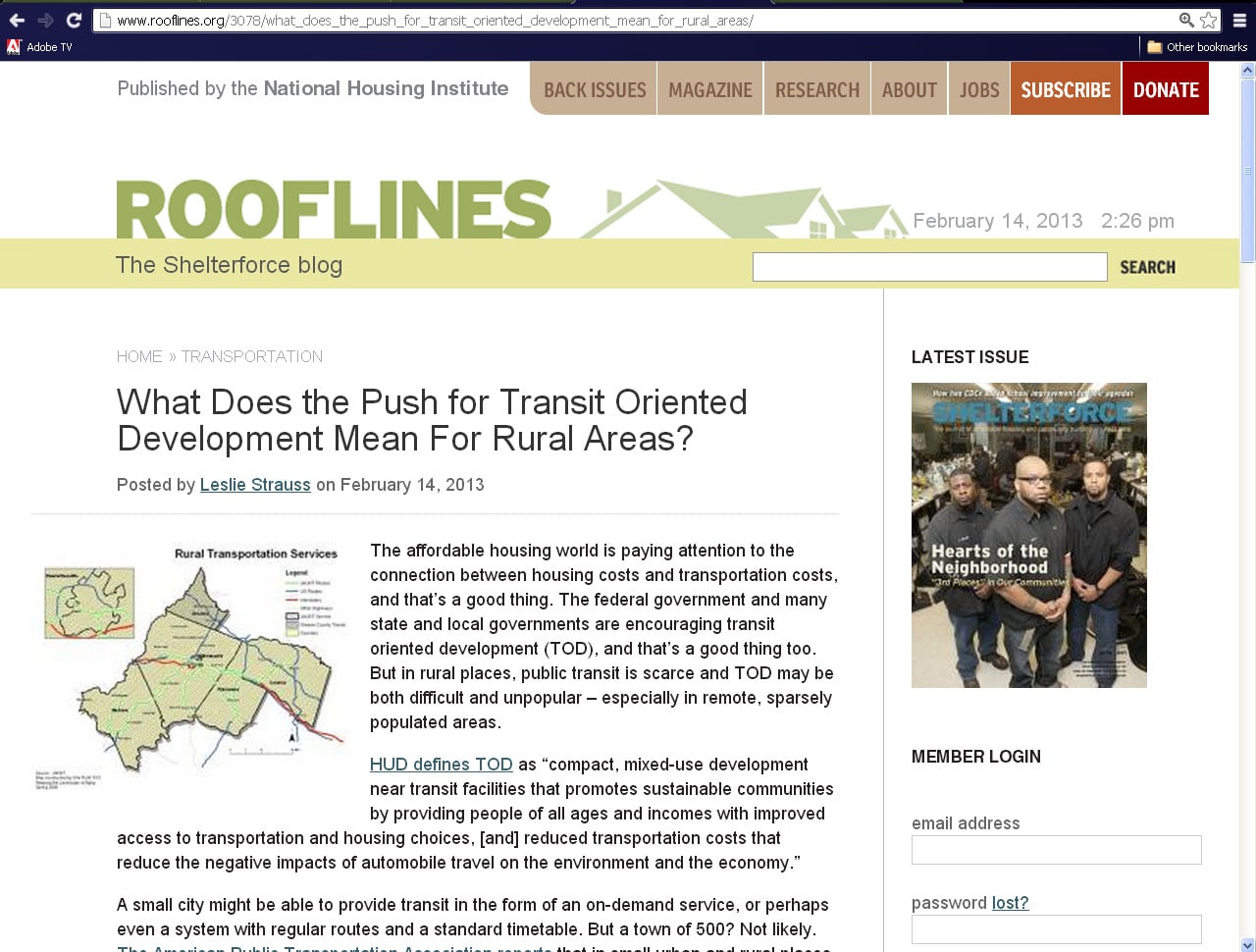 The affordable housing world is paying attention to the connection between housing costs and transportation costs, and that’s a good thing. The federal government and many state and local governments are encouraging transit oriented development (TOD), and that’s a good thing too. But in rural places, public transit is scarce and TOD may be both difficult and unpopular – especially in remote, sparsely populated areas.
The affordable housing world is paying attention to the connection between housing costs and transportation costs, and that’s a good thing. The federal government and many state and local governments are encouraging transit oriented development (TOD), and that’s a good thing too. But in rural places, public transit is scarce and TOD may be both difficult and unpopular – especially in remote, sparsely populated areas.
HUD defines TOD as “compact, mixed-use development near transit facilities that promotes sustainable communities by providing people of all ages and incomes with improved access to transportation and housing choices, [and] reduced transportation costs that reduce the negative impacts of automobile travel on the environment and the economy.”
A small city might be able to provide transit in the form of an on-demand service, or perhaps even a system with regular routes and a standard timetable. But a town of 500? Not likely.The American Public Transportation Association reports that in small urban and rural places, 41 percent of residents have no access to transit and another 25 percent live in areas with below-average transit services. To provide transit oriented affordable housing development in those places, new transit systems could be created – if funding could be found. Alternatively, residents would have a choice: move to affordable housing created near transit, or live where they prefer to live but without housing assistance.
Fortunately the creators of TOD initiatives are finding ways to avoid disadvantaging rural residents. An applicant for Low Income Housing Tax Credits from the Minnesota Housing Finance Agency can score three points for a development that is near public transit, is in a designated transit improvement area, is within a specified distance from employment opportunities and has dial-a-ride services available, or is within a specified distance from employment opportunities and is close to public services like a post office, a medical or dental office, a supermarket, or others.
The Illinois Housing Development Authority takes a more restrictive approach in providing a different standard for rural areas. A tax credit applicant can score two points if its development is within six blocks of fixed-route public transportation in the city of Chicago, one mile in the Chicago metropolitan area, 1.5 miles in another metro area, and two miles in a nonmetro area. In some other states, setasides for rural areas allow tax credit allocators to avoid the TOD discrimination issue.
Outside the tax credit arena, advocates in California have developed a proposal to direct a specific pool of state funding toward investments in housing and transportation. California rural housing interests are developing language that could be added to take account of the transit differences in rural places.
The National Housing Trust – which graciously provided the Minnesota and Illinois examples above – is conducting research on the connections between tax credits and transit and will release a report later this year. Has anyone conducted research on the application of TOD requirements in rural places under other programs? Are there other examples of best practices – or worst practices?
What do you think? Has the TOD focus had a positive, negative, or no effect on rural affordable housing development? Please comment on the Rooflines website.

